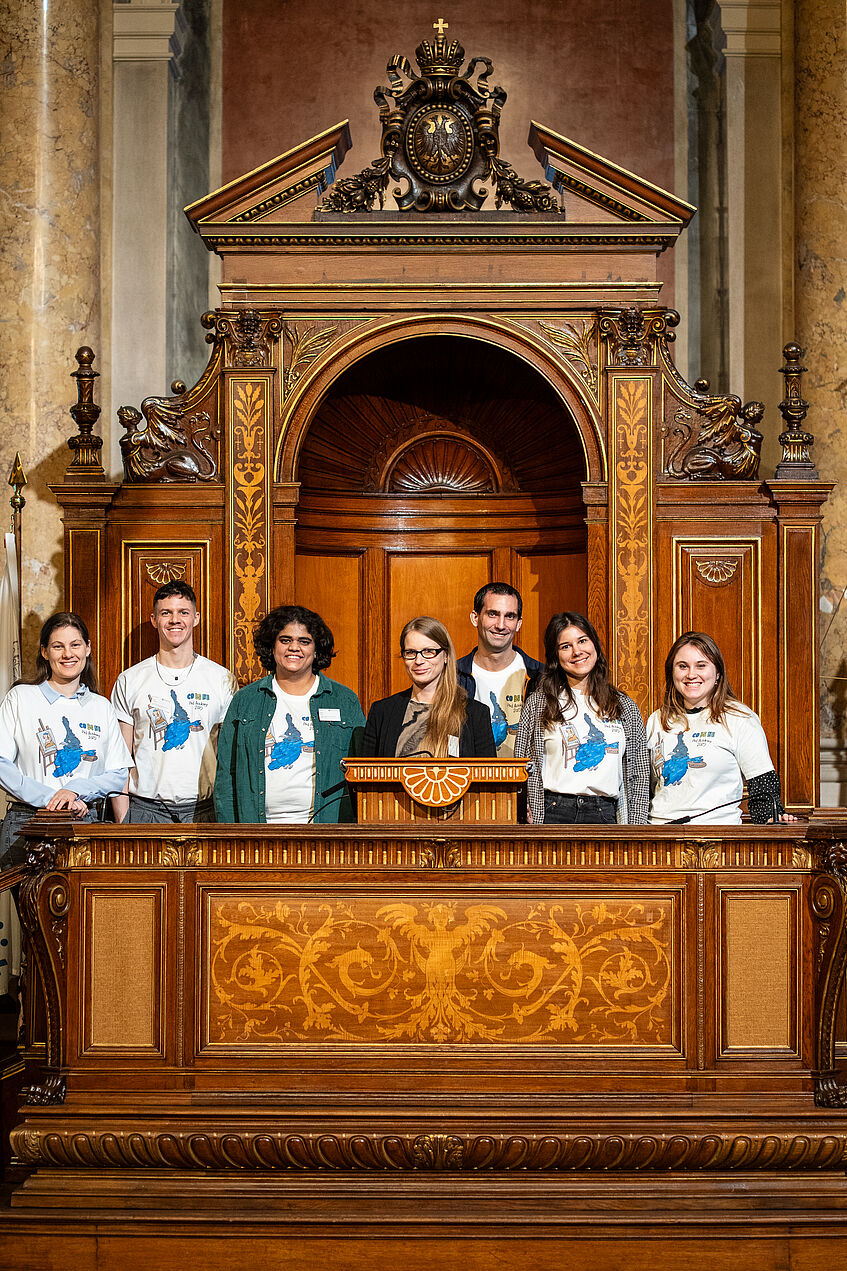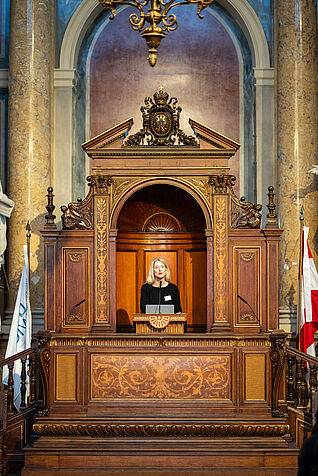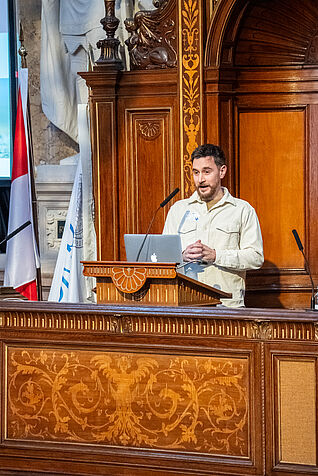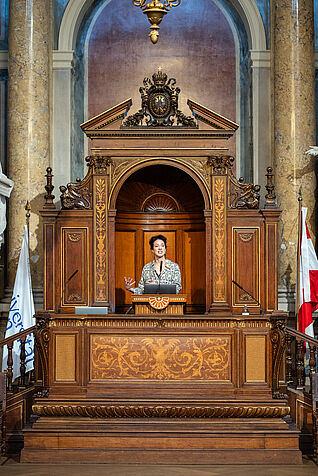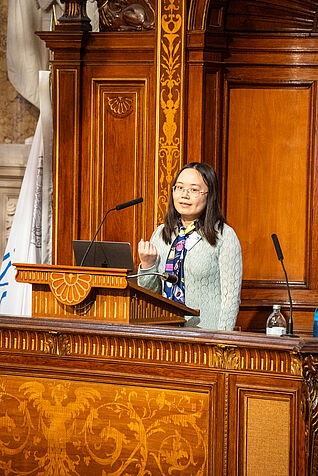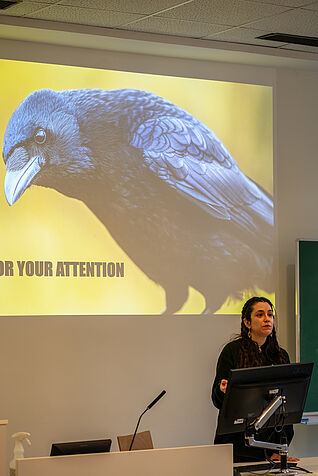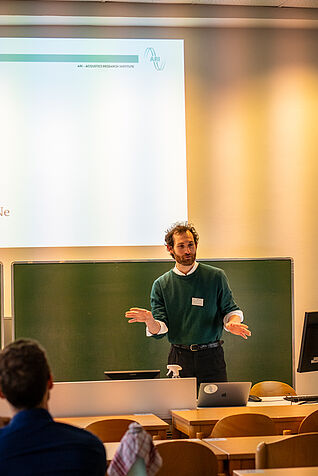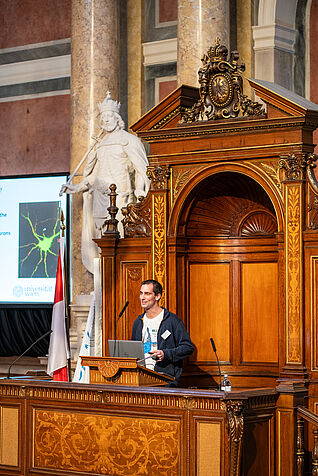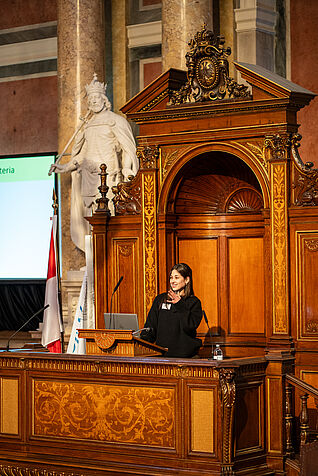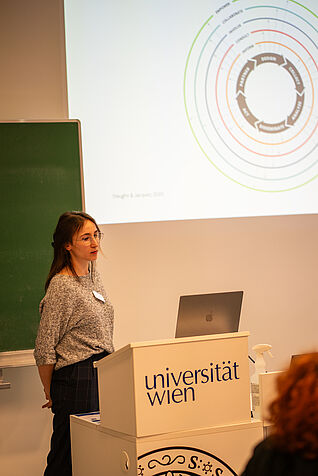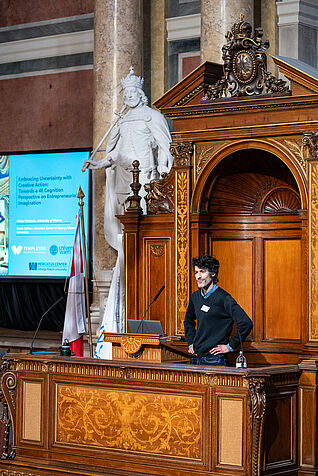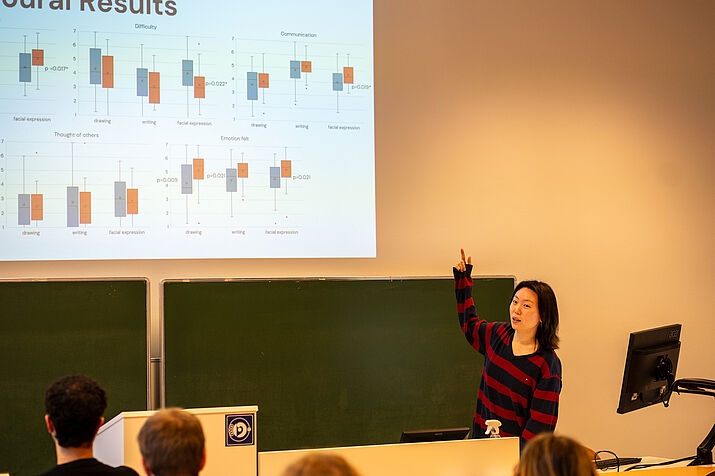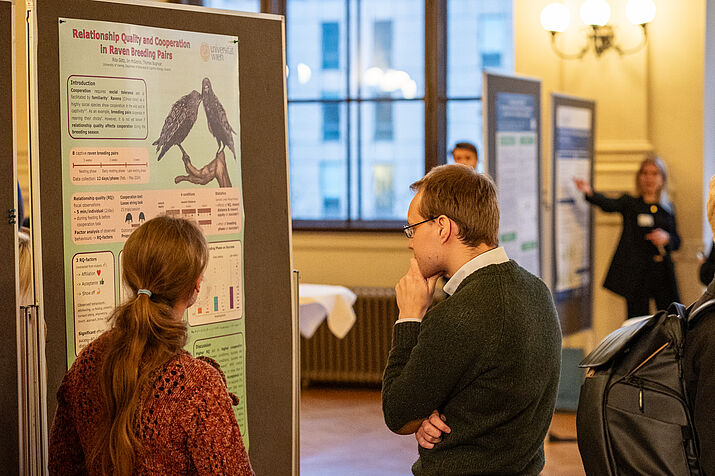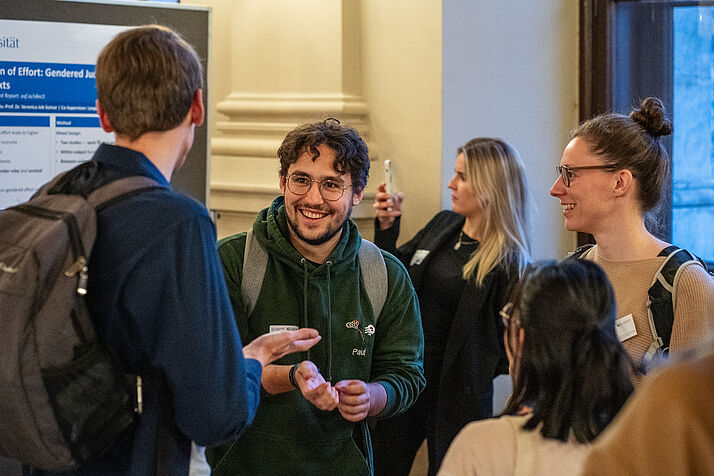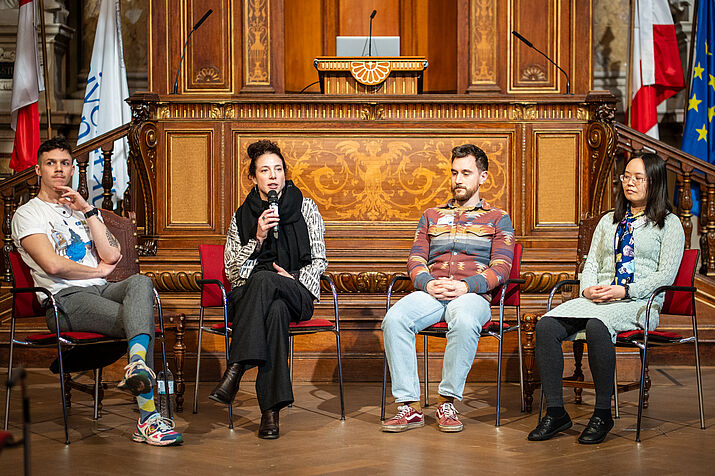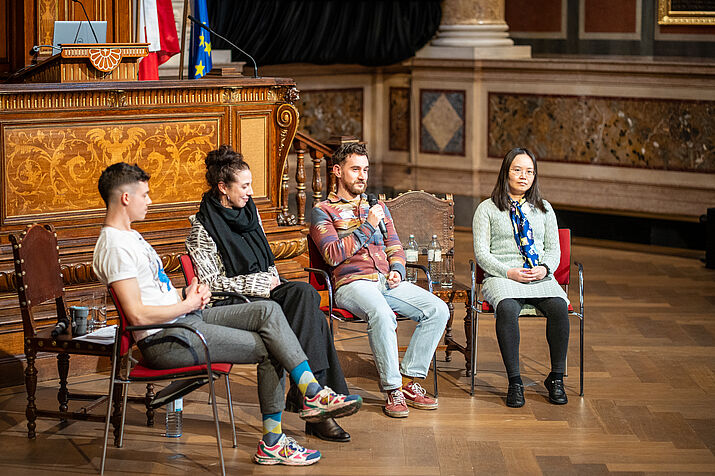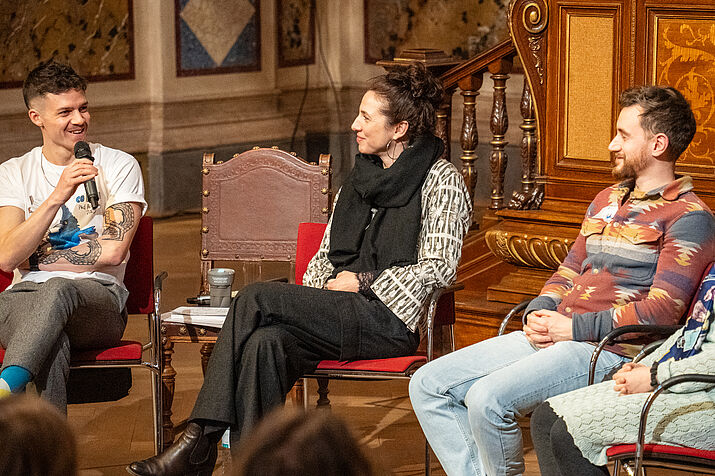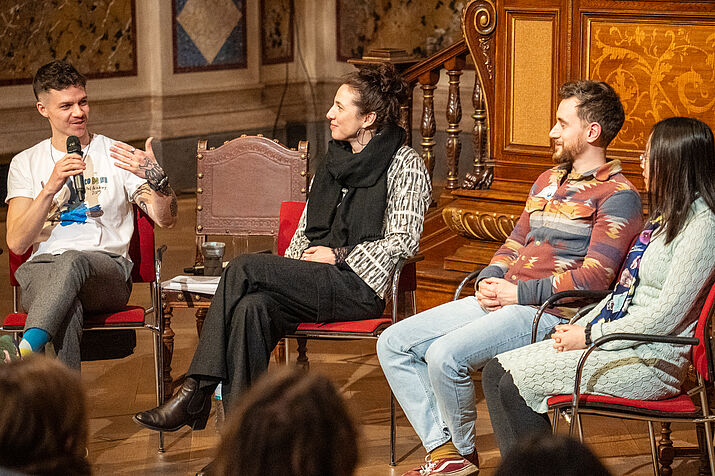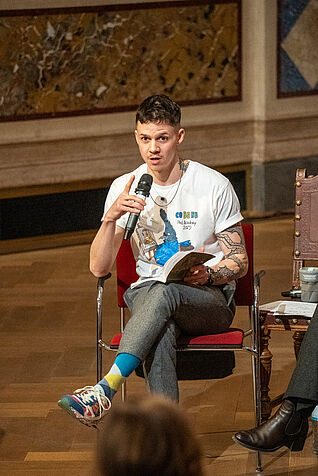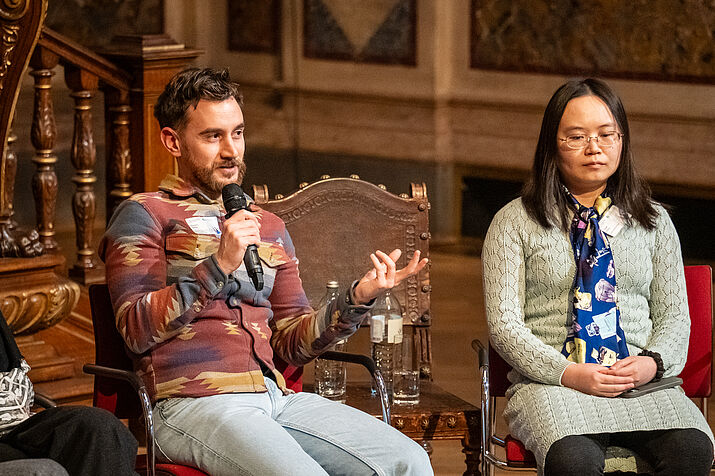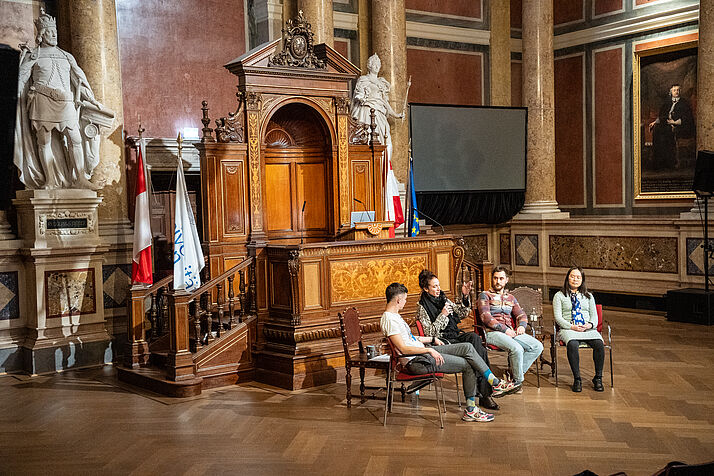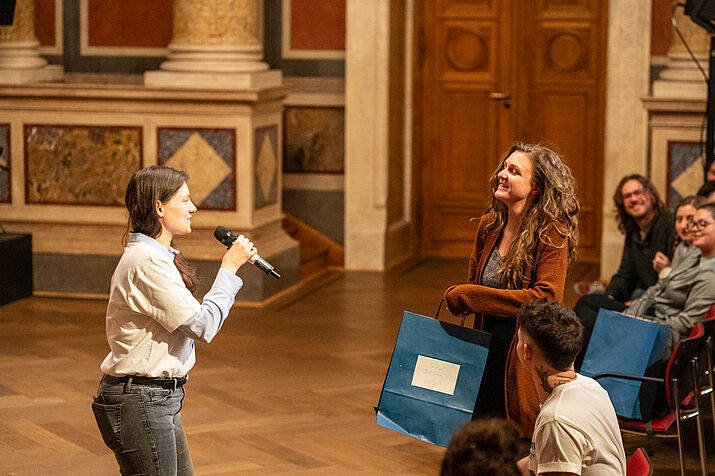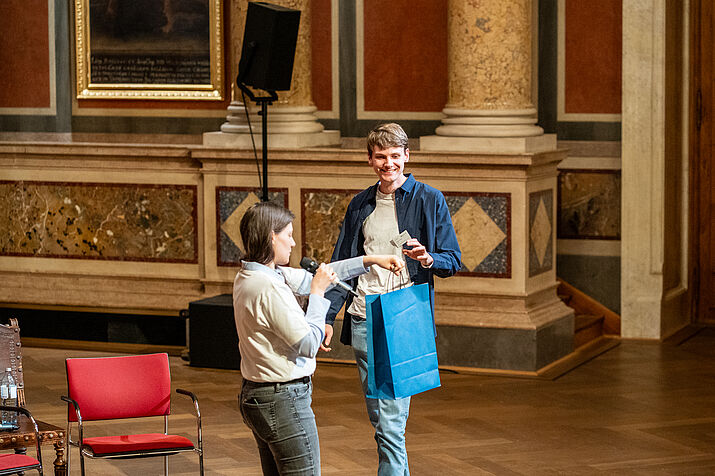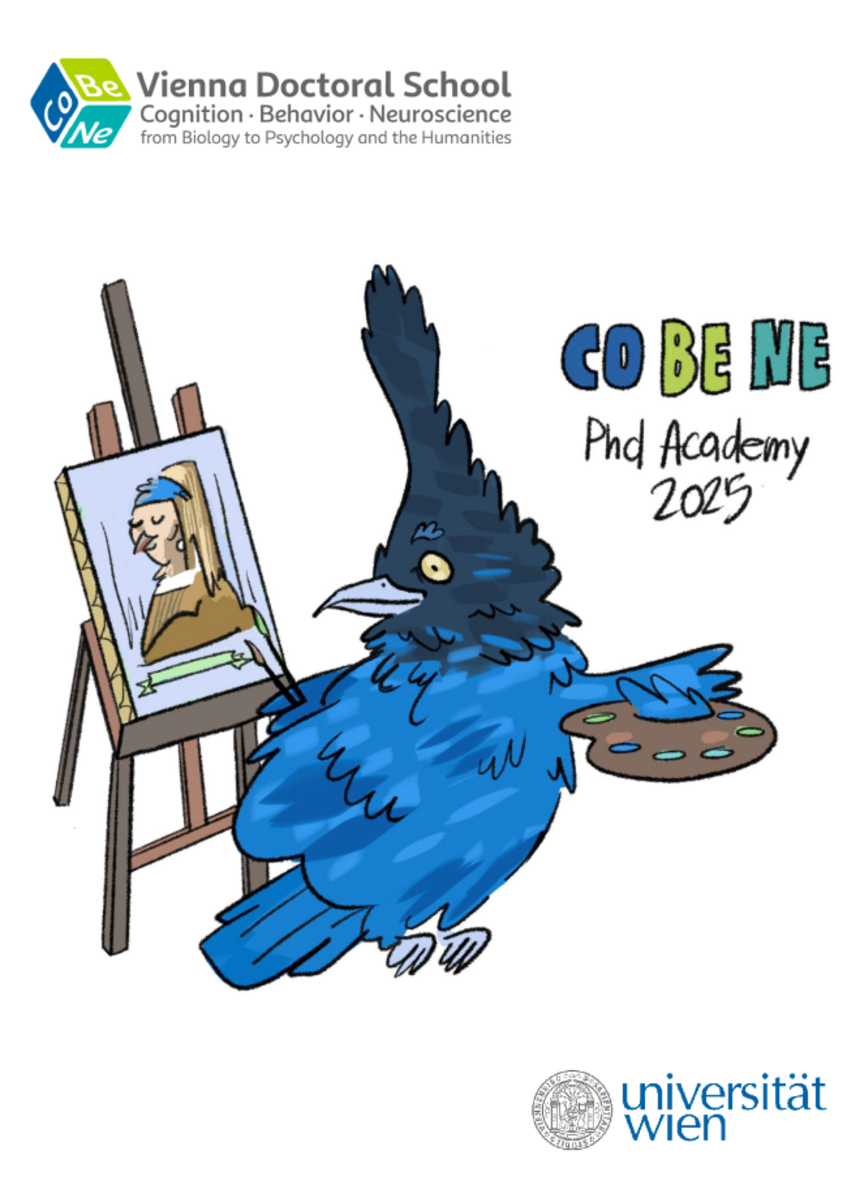5th PhD Academy - VDS CoBeNe Annual Doctoral Conference
The 4th CoBeNe PhD Academy took place at the Festsäle at the University Vienna, 25th & 26th of February 2025. It was a vibrant two-and-a-half-day experience, featuring thought-provoking scientific discussions and enriching pre-conference activities.
Kick Off: Inside the Labs - A Behind the Scenes Tour
The event began with engaging lab visits at the Haidlhof Research Station and the Faculty of Psychology. During the lab visit of the Haidlhof Research Station for studies on bird cognition, in cooperation with the Veterinary Medicine University of Vienna attendees had the chance to experience how cognitive studies are designed and conducted at the corvid and kea research facilities. At the Faculty of Psychology in the Machine Learning Lab the application of machine-learning techniques and statistical signal-processing methods in addressing (psychological) research questions was introduced. Furthermore, modern research tools such as Eyetracking, EEG, and other methods to investigate cognitive and perceptual psychology have been presented by the Cognition Research Lab. And finally in the WieKi (Wiener Kinderstudien) Lab participants have been guided through research on early social and cognitive development in infants and children, employing techniques such as fNIRS, EEG, ECG, and more. These tours provided valuable insights into the innovative research being conducted by CoBeNe doctoral candidates and colleagues. After a half-day of exploration, attendees gathered at Café Einstein for a social evening, offering a perfect opportunity for networking and informal conversations. The relaxed setting fostered meaningful connections, allowing participants to connect and share ideas.
Welcome Address
The main conference began on February 25th with a warm welcome from the CoBeNe executive team, the study program directors, Univ.-Prof. Mag. Mag. Dr. Dr. Dr. Martin Voracek (Psychology), Univ.-Prof. Mag. Dr. Thomas Bugnyar (Behavioral & Cognitive Biology), Univ.-Prof. Dr. Thomas Hummel (Neuroscience), and Univ.-Prof. Dr. Jutta Mueller (Cognitive Humanities) and the management team, Dr. Katja Hellekes and Tamara Tapaj, Bsc., sharing their excitement for the conference. They emphasized its importance in supporting the growth of doctoral candidates and encouraging collaboration across disciplines and faculty.
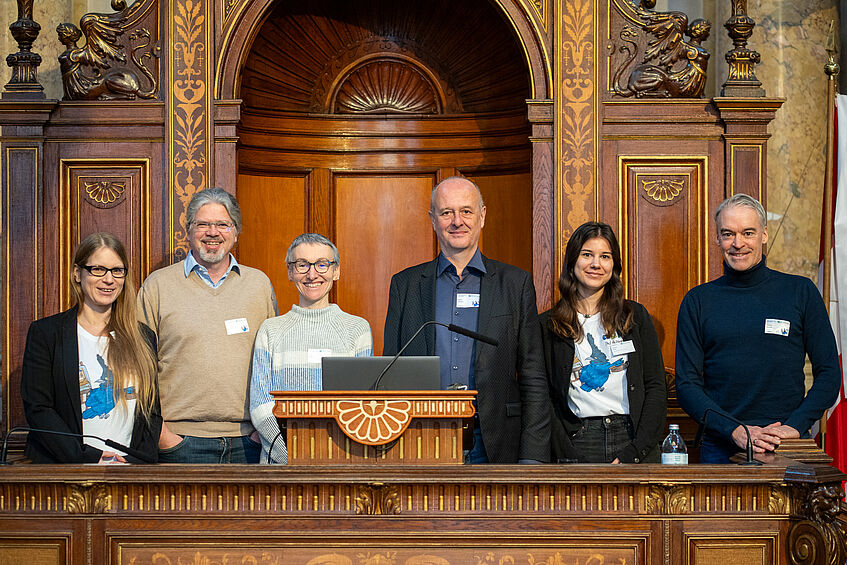
Keynote Lectures
Alumni doctoral candidates showcased their ongoing research through keynote lectures, covering a wide range of topics. Dr. Lisa Fenk (Max Planck Institute for Biological Intelligence, Seewiesen, Germany) presented her work on the "Neural mechanisms for active eye movements in Drosophila" in the field of neuroscience. From the behavioral and cognitive biology perspectve Giovanni Spezie, PhD (Max Planck Institute for Biological Intelligence, Seewiesen, Germany) introduced "Learning and plasticity of avian courtship:The role of the social environment". In the keynote lecture "Creativity in Parkinson’s Disease: Epidemiological, Neuropsychological, and Therapeutic Insights" by Dr. Blanca T.M. Spee (Vienna Cognitive Science Hub, University of Vienna, Austria) a former psychology doctoral candidate highlighted a transdisciplinary approach combining art research and medicine to investigate how creativity is anchored in the brain; to find out why the feeling of being creative and the motivation to engage in creative activities change over the course of an illness; and to develop creativity-based art therapies based on the results. Dr. Yaqian Huang (Austrian Academy of Sciences) conveyed insights from the field of cognitive humanities about "The role of period-doubled voice in speech production and perception".
Early Career Research Across Diverse Fields
During the conference, 49 PhD candidates had the opportunity to showcase their research through parallel sessions, offering insights into a broad array of topics. These doctoral projects spanned diverse fields, from environmental studies to the perception of art, brain functionality, statistical methodologies, and advancements in brain imaging and modulation. The research also touched on animal behavior in social settings, the dynamics of communication and perception, mental and physical health, and additional studies focused on environmental perspectives. In addition to these sessions, 36 master’s students contributed to the ongoing dialogue through poster presentations. These discussions further enriched the academic environment, providing an open forum for sharing ideas and engaging in meaningful debates. This years PhD academy effectively integrated international early career researchers from the Junior Researcher Programme (JRP), promoting international perspectives and collaborative opportunities. The variety of research topics sparked valuable interdisciplinary collaboration, fostering a dynamic exchange of knowledge and ideas. The collective effort created an intellectually stimulating atmosphere, encouraging both emerging scholars and experienced researchers to explore new dimensions of their respective fields.
Panel discussion & awards
Concluding the PhD academy keynote speakers shared their experiences at different research stages and international research facilites in a career panel discussion moderated by Franz Schmid, Bsc. MA. The panel addressed subjects such as career decisions, navigating uncertainties, and the excitement of pursuing fascinating research topics.
At the end, an award ceremony was held to acknowledge the best presentations and posters. This year, the awards for the best talks were given to Katharina Prager in first place, Jeroen Stephan Zewald in second place, and Irene Amparo Böhm in third place. The awards for the best poster presentations were awarded to Stefanie Alice Hofer for first place, Viktoria Staufer for second place, and Sara Bosch for third place.
Organizers Team
The event was a great success! The VDS CoBeNe appreciates all attendees for contributing to its vibrant atmosphere and particularly all supervisors supporting their PhD candidates. A special thanks to the PhD candidates who played a key role in organizing the event, as their dedication and attention to detail were essential to its smooth execution.
- Awani Bapat
- Viktoria Groiß
- Teresa Kamencek
- Susanne Kerschbaumer
- Sandra Oberleiter
- Franz Schmid
- Benedikt Steininger
- Stephan-Mathias Schulreich
- Bence Szasko
- Markus Tünte
We would also like to thank the photographer Christian Haider, Anna Miscenà for creating the logo, the catering team of Habibi and Hawara and the conference and event management of the University of Vienna for their support.
